Since its invention, television has been hypnotizing all humans careless enough to glance toward its gaping maw of doom. It takes a strong will to look away from the pretty colors, to pull one’s mouth from the glowing glass teat. Look at it humming over there in the corner of your living room, pulsating on your office desk, babbling in your car, screaming from your iPad. Lately we’ve taken to calling it “the internet.” There is no escape.
Dangerous as it is for humans, it’s still worse for aliens. Look at the pixels! At the shiny faces! At the never-ceasing, rapid-fire onslaught of images! Change the channel and there’s even more of it! Droooool…Aliens simply don’t have the mental tools to avoid falling into that great black hole of pure, unadulterated infotaintermation. Every movie ever made featuring an alien showing up on present-day Earth is required to feature them gaping with wonder at a TV.
So what better place to watch movies featuring characters obsessed with watching television than on your television? You too can feel like an alien and/or simpleton and/or god and imagine a movie being made about your obsessive television watching habits. Which movie you may then rent and watch. Man, this just gets better and better.
Today we honor this great tradition of space creatures and the TVs they love with this week’s Mind Control Double Feature. We begin with:
The Man Who Fell To Earth (’76)
Director Nicolas Roeg worked for years as a camera-operator until David Lean noted his work as a second-unit director on Lawrence of Arabia (’62). Lean used Roeg as a sort of extra, uncredited cinematographer on his follow-up, Doctor Zhivago (’65), and soon Roeg became a director in his own right. He’s most known for three early films from the ‘70s, Walkabout (’71), Don’t Look Now (’73) and The Man Who Fell To Earth.
David Bowie stars as the titular alien, which I know, talk about typecasting. I’m guessing Roeg had to direct him to act more like a human just to make the thing believable. Not surprisingly, Bowie nails the part. You never doubt for a moment that this freak came from another planet.
Newton, the name the alien goes by, has come from a planet suffering a terrible drought. He needs water. He stumbles around for awhile, but pretty soon, through his space-age tech knowledge, he creates a massive company specializing in crazy new scientific inventions, thereby amassing enough money to build a spacecraft to get him home, or to get the water there, or some combination thereof.
Newton’s patent attorney, Farnsworth, is played by Buck Henry, and there’s another plot thread involving an aging professor who screws lots of pretty coeds played by Rip Torn. Both give very entertaining performances.
Newton gets himself a girlfriend, Mary-Lou (Candy Clark), who introduces him to such fun Earth-people hobbies as screwing. He builds her an awesome house on a lake and everything’s grand until she and everyone else start catching on to who Newton really is.
As things get worse, Newton watches more and more television, many televisions at once, even. He just sits and watches and drinks, his brain far, far away. Sound familiar? It sure does to me. Which reminds me, I need another glass of rye. Suffice to say, the movie doesn’t have a happy ending. It is a movie about loneliness, defeat and, you guessed it, alienation.
It is also a very strange movie, I should note. Very European in its pacing, and very early ‘70s in its jarring editing and vague story. There are a number of scenes on Newton’s draught-stricken home planet that are wonderfully low-budget and at the same time beautiful and weird. I won’t give away any more of the story, but towards the end Newton finds himself in a very surreal environment I’ve no doubt you’ll quite enjoy.
There are a number of bizarre sex scenes too, if you’re into alien sex. Which I know you are.
The movie is based on a novel by Walter Tevis, who also wrote the novels on which the movies The Hustler and The Color of Money are based.
Now that you’ve been titillated, weirded out, and depressed by Bowie’s feckless alien, it’s time for something a bit more funny and uplifting, featuring a very different sort of alien. Welcome to:
Being There (’79)
Being There caps off the stellar run of ‘70s movies directed by Hal Ashby (check out our recent write-ups of The Last Detail and Bound For Glory and Shampoo. We’ve been on a bit of an Ashby kick of late). It too stars an actor known for his somewhat alien nature, Peter Sellers, in one of his best roles. He’s not actually playing an alien from another planet in Being There, but he might as well be. He plays a character possessing a very peculiar nature, who, once the final scene unfolds, could be…well, let’s wait on the ending.
Sellers plays Chance the gardener. He’s 50ish, seemingly simple-minded, and has apparently lived his entire life in the mansion of a rich man, where he tends the garden. The movie opens with the death of the old man. The house is being closed up. All the servants are leaving. Chance is the last one there. He has nowhere to go. He’s never been anywhere. All he knows of the world outside he knows from watching TV. He likes to watch.
Television is a character in Being There. There’s one on almost all the time, and no one can help but watch it, no matter what else is happening. A certain Dianne Schroeder is credited for Special Television Effects, meaning she found all the bits and pieces shown throughout, which both comment on and create meaning for the movie, the best of which has to be the animated video for the Cheech & Chong song “Basketball Jones,” seen and heard during Chance’s limo ride.
How’d Chance get himself in a limo? He (and we the audience) leave the gorgeous townhouse he’s spent his whole life in to find it located in a seedy area of Washington D.C., all to the strains of Deodato’s disco/jazz version of “Also Sprach Zarathustra,” AKA the theme to 2001. Gently bumped by a limo, he’s taken to the mansion of the old and dying Ben Rand, wealthy friend to the President himself.
And so. No one (but for one perceptive doctor (played by Richard Dysart (who also played a doctor in The Thing (’82), in which he met an unfortunate end))) notices that Chance is just a simple-minded gardener. They think he’s a well-do-to, smart yet quiet and respectful man possessed of great insight into politics and economics. Any time Chance is asked a question on these topics, he says things like, “In the garden, growth has its seasons,” and “As long as the roots are not severed, all is well.” Taken as thoughtful metaphors for the nation’s economic woes, Chance grows more and more famous. He appears on a television talk show and meets the President. Rand’s daughter Eve (Shirley MacLaine) falls for him.
But all Chance wants to do is watch TV. He doesn’t know what to with Eve. He wishes he had a garden to tend.
What exactly Being There is saying is entirely up for debate. I love it for that. Is Chance truly wise? Is he truly a moron? Are the people fooled by him morons? Or are they wise for taking him to be smart? The movie offers no answers. The final scene was added by Ashby at the last minute. The production company hated it, but Ashby won the fight, and it’s become one of the most iconic moments in the movies. It changes everything. Or does it? It certainly adds to everything. But how? What does it really mean? Watch it and decide for yourself.

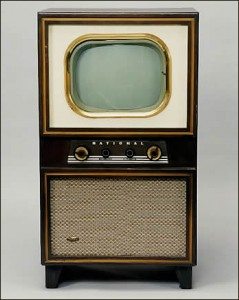
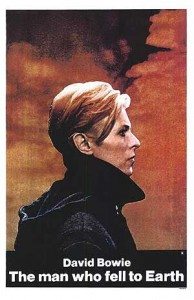

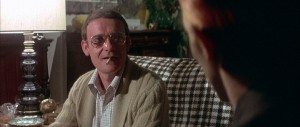
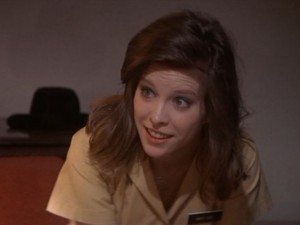

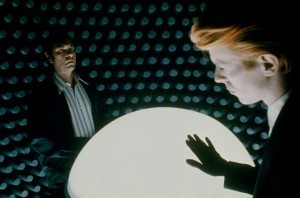
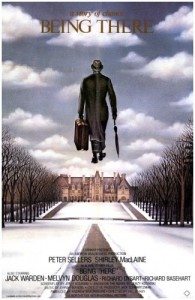
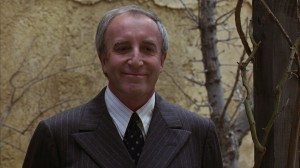
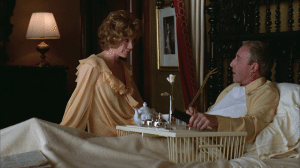
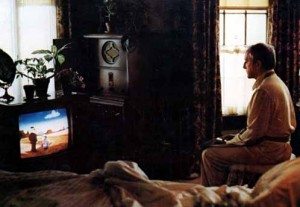
Being There. Truly among the greatest films of all time. As to it’s meaning, I recall the words of Elwood P. Dowd:
“Years ago, my mother used to say to me, she’d say ‘In this world, Elwood, you can be oh so so smart, or oh so pleasant.’ Well, for years I was smart… I recommend pleasant.'”
Have you guys studied film? or just watched tons of movies?
Yes to both. And we both worked in Hollywood for a spell, too.